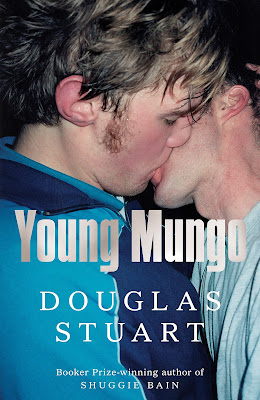Book #36
Young Mungo by Douglas Stuart
Born under different stars, Protestant Mungo and Catholic James live in the hyper-masculine and violently sectarian world of Glasgow’s housing estates. They should be sworn enemies if they’re to be seen as men at all, and yet they become best friends as they find a sanctuary in the pigeon dovecote that James has built for his prize racing birds. As they find themselves falling in love, they dream of escaping the grey city, and Mungo works especially hard to hide his true self from all those around him, especially from his elder brother Hamish, a local gang leader with a brutal reputation to uphold.But the threat of discovery is constant and the punishment unspeakable. When Mungo’s mother sends him on a fishing trip to a loch in Western Scotland with two strange men whose drunken banter belies murky pasts, he will need to summon all his inner strength and courage to get back to a place of safety, a place where he and James might still have a future.
I was fully expecting this novel to break me, I just thought I would be broken in half, not into a million fragments. Stuart’s ability to depict broken and dangerous lives is masterful, he has a power of eliciting feelings of both pity and shame, sympathy and horror, in an all too understandable and familiar world.
Weaving two timelines together, he shows us Mungo’s home life and the joy he feels meeting James, contrasted against a future narrative, where Mungo has been sent on a camping trip with his mother’s two ‘friends’ - an exercise dreamed up as something which will allow him to ‘become a man’. Sending your homosexual teenager fishing with two strangers is a surefire way to knock the hetero back into him, yes?
Whilst the chapters detailing Mungo’s problematic life were filled with horror and solace almost hand in hand, the camping sections were filled with such dread for me. I was uncomfortable; it was too remote, Mungo’s two guardians too reckless and difficult to understand. Small flashes of safety were quickly bowled over by a small comment or tiny action, which created such harrowing apprehension. The pages were thick with foreboding, and although I felt sick, the skill here is wonderful.
And Stuart’s perfectly imperfect characters strike a beautiful and very realistic balance of the working class. From the abhorrent Ha-Ha to Poor Wee Chickie, each of them represent characters you’d meet in Glasgow; ones which hold their gorgeous salt of the earth traits in one hand, whilst holding their flaws in the other.
I truly loved this book, despite its lack of regard for my emotional state. I’m loathe to compare it to Shuggie, so all I will say is that if you felt oor Shug too bleak and grim, Mungo will probably shatter you with his story.

